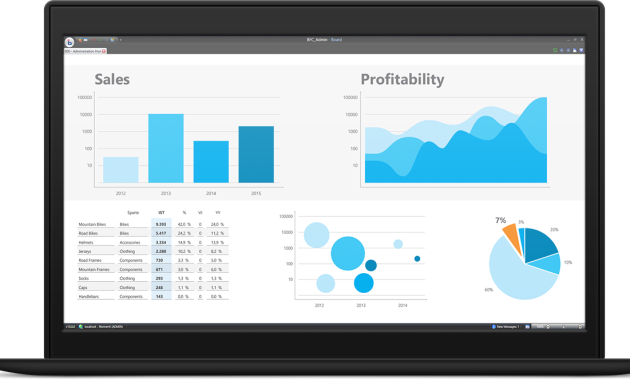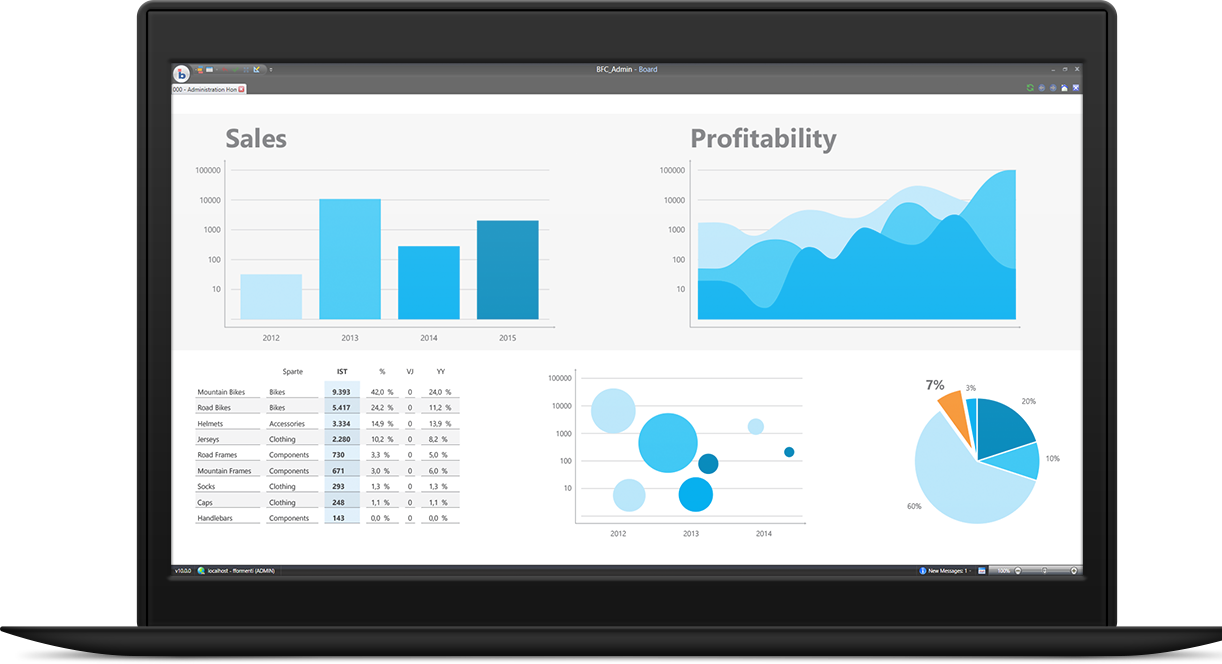
Discover Business Intelligence Software for Better Reporting: A Comprehensive Guide
In today’s data-driven world, the ability to extract meaningful insights from raw data is critical for business success. Organizations are constantly seeking ways to improve decision-making, optimize operations, and gain a competitive edge. This is where Business Intelligence (BI) software steps in. This article provides a comprehensive overview of Business Intelligence software, its benefits, and how it can revolutionize your reporting processes. We will explore the key features to look for and how to choose the right solution for your specific needs.
Understanding Business Intelligence Software
Business Intelligence software is a category of applications designed to collect, process, analyze, and visualize business data. It transforms raw data into actionable insights, enabling businesses to make informed decisions. This software typically integrates data from various sources, including databases, spreadsheets, and cloud applications. The result is a unified view of the business, providing a foundation for strategic planning and operational improvements.
Key Benefits of Using Business Intelligence Software
- Enhanced Decision-Making: BI software provides data-driven insights, leading to more informed and strategic decisions.
- Improved Efficiency: Automation of reporting and analysis tasks frees up valuable time for other business activities.
- Increased Profitability: By identifying trends and opportunities, BI software can help businesses optimize revenue and reduce costs.
- Better Customer Understanding: Analyze customer data to gain valuable insights into their behaviors and preferences.
- Competitive Advantage: Leverage data to identify market trends and stay ahead of the competition.
Core Features of Business Intelligence Software
Business Intelligence software offers a range of features that facilitate data analysis and reporting. Understanding these features is essential for selecting the right software for your needs. Here are some core features:
Data Integration and ETL (Extract, Transform, Load)
The ability to integrate data from various sources is fundamental. ETL tools allow you to extract data from different systems, transform it into a usable format, and load it into a central repository. This ensures that all data is consistent and accessible for analysis.
Data Visualization and Dashboards
Data visualization tools transform complex data into easily understandable charts, graphs, and dashboards. These visual representations make it easier to identify trends, patterns, and anomalies. Interactive dashboards provide a real-time view of key performance indicators (KPIs).
Reporting and Analysis
BI software provides robust reporting capabilities, allowing users to generate customized reports based on specific needs. Advanced analytics features, such as predictive modeling and data mining, enable deeper insights and forecasting.
Data Mining and Predictive Analytics
Uncover hidden patterns and relationships within your data. Predictive analytics leverages statistical techniques to forecast future trends and outcomes. This helps businesses anticipate changes and make proactive decisions.
Self-Service BI
Empower users to perform their own data analysis without relying on IT departments. Self-service BI tools offer user-friendly interfaces and drag-and-drop functionality, making data analysis accessible to a wider audience.
Mobile BI
Access data and reports on the go with mobile BI applications. This enables executives and other stakeholders to stay informed and make decisions from anywhere.
Choosing the Right Business Intelligence Software
Selecting the right Business Intelligence software is crucial for maximizing its benefits. Consider the following factors when making your decision:
Your Business Needs
Identify your specific reporting requirements and business goals. Determine which data sources you need to integrate and what types of analysis you want to perform. A clear understanding of your needs will guide your software selection.
Scalability
Choose a solution that can scale with your business. As your data volume grows, your BI software should be able to handle the increased load without performance degradation.
Ease of Use
Opt for software that is user-friendly and easy to navigate. The software should have an intuitive interface and provide adequate training and support. Look for self-service capabilities to empower business users.
Integration Capabilities
Ensure the software can integrate with your existing systems, including databases, CRM, and ERP systems. Seamless integration will streamline data collection and analysis.
Cost
Evaluate the pricing models and total cost of ownership. Consider the initial software cost, implementation expenses, and ongoing maintenance fees. Compare different vendors and choose the best value for your budget.
Vendor Reputation and Support
Research the vendor’s reputation and customer reviews. Ensure the vendor provides reliable support and training. A good vendor will offer ongoing assistance and updates.
Top Business Intelligence Software Solutions
Several Business Intelligence software solutions are available in the market. Here are some of the leading providers:
Tableau
Tableau is a popular BI tool known for its user-friendly interface and powerful data visualization capabilities. It offers a wide range of features for data exploration, analysis, and reporting.
Microsoft Power BI
Microsoft Power BI is a comprehensive BI platform that integrates seamlessly with other Microsoft products. It offers a range of data connectivity options, interactive dashboards, and advanced analytics features. It is a very popular solution for Business Intelligence software.
Qlik Sense
Qlik Sense is a self-service BI platform that uses an associative data model. It allows users to explore data and uncover insights quickly. It is known for its flexibility and ease of use.
Sisense
Sisense is a BI platform designed for complex data analysis. It offers a robust set of features for data integration, visualization, and reporting. This is a great example of Business Intelligence software.
Looker
Looker is a data analytics platform that focuses on data modeling and governance. It provides a centralized data platform for consistent reporting and analysis. It is now owned by Google.
Implementing Business Intelligence Software: Best Practices
Successful implementation of Business Intelligence software requires careful planning and execution. Here are some best practices:
Define Clear Objectives
Clearly define your business goals and reporting requirements before implementation. This will guide your software selection and implementation process.
Data Governance
Establish data governance policies to ensure data quality, consistency, and security. This includes defining data standards, data ownership, and data access controls.
User Training
Provide comprehensive training to users on how to use the software. This will empower them to perform their own analysis and make informed decisions.
Iterative Approach
Implement the software in an iterative manner, starting with a pilot project and gradually expanding its scope. This will allow you to identify and address any issues early on.
Monitor and Evaluate
Continuously monitor the performance of the software and evaluate its impact on your business. Make adjustments as needed to optimize its effectiveness. This will help ensure the long-term value of your Business Intelligence software investment.
The Future of Business Intelligence Software
The future of Business Intelligence software is bright. Emerging trends, such as artificial intelligence (AI) and machine learning (ML), are transforming the industry. AI-powered BI tools can automate data analysis, provide predictive insights, and personalize user experiences. Cloud-based BI solutions are becoming increasingly popular, offering greater scalability and flexibility. As businesses generate more data, the demand for sophisticated BI tools will continue to grow.
Conclusion
Business Intelligence software is a powerful tool that can transform your reporting processes and drive business success. By understanding the benefits, features, and implementation best practices, you can choose the right solution for your needs and unlock the value of your data. Embrace the power of data and make informed decisions to gain a competitive edge in today’s dynamic business environment. The right Business Intelligence software can be a game-changer for your organization.
[See also: Related Article Titles]
